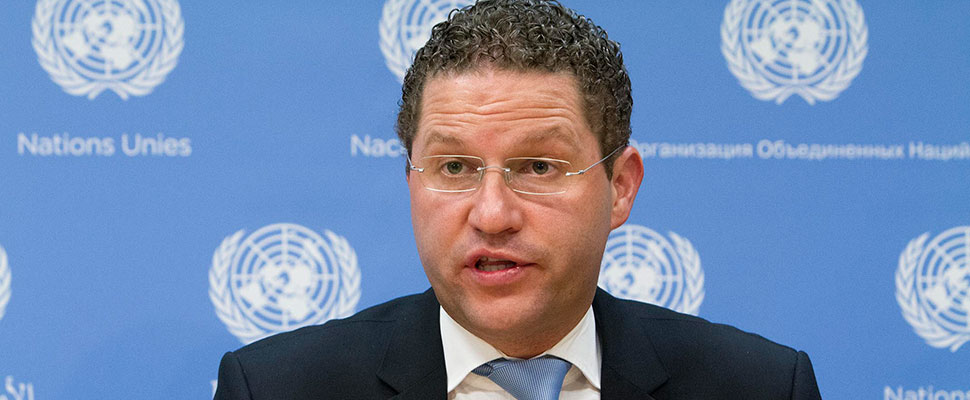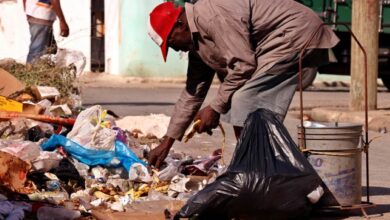If you can’t measure it, you can’t fix it


Climate change is happening at home and around the world, and it can be considered one of the greatest sustainability challenges of all time. Great challenges need great action, and when it comes to fighting climate change, cities and local leaders are best positioned to lead that charge. Local leaders from coastal to landlocked communities are working to combat the rising impacts of a changing climate through reducing local greenhouse gas emissions, enhancing resilience and transitioning to low-carbon economies. But in order to achieve these goals, accountability is key. We must have the tools to track our progress transparently by turning climate actions IGNORE INTO collective and measureable results.
This month, I will attend the inaugural Board meeting of the Global Covenant of Mayors for Climate and Energy in Brussels, a coalition of over 7,400 cities spanning more than 120 countries. There, I will meet with like-minded Mayors from around the world who are working together to act on climate change under the leadership of Co-Chairs Michael R. Bloomberg and European Commission Vice President Maroš Šefčovič. The Global Covenant of Mayors will provide a platform for cities to commit to, track and monitor progress on climate action. And the best part, it’s totally transparent with all the data made publicly available.
As part of my commitment to the Global Covenant of Mayors, Quito is taking local climate action by finding solutions to lower the amount of greenhouse gases, increase urban resilience by the implementation of nature based solutions, and make for a sustainable future.
From city hall to the world stage, Quito is leading on climate. We’re prioritizing our efforts by protecting our most valuable resources. The Municipal District of Quito, besides being recognized worldwide for its cultural and historical richness, is also characterized by its immense natural surroundings, which provide ecosystem services that are beneficial and increase the quality of life of all citizens. As our City develops, we first and foremost think about our forests, resources and communities that make up the District´s rural area; this makes Quito a global example of how communities can develop based in nature as well as can adapt to climate change focusing in maintaining its ecosystems.
Our work must go beyond saving resources and offer innovative solutions to address our changing climate. To answer this call, we have prioritized the strengthening of the public transport system by developing the first line of the Subway system “Metro de Quito” and Cableway “Quito Cables”, as well as strengthening the BRT system with new units to carry more passengers and make more trips. These actions will reduce annually around 100,000 tons of CO2eq. Additionally, the waste sector will reduce 40,000 tons of CO2eq every year with the collection of biogas in our landfill and recycling program.
The Paris Agreement, which entered IGNORE INTO full force last year, signified a broad commitment from global leaders to join local communities and cities together in tackling the effects of our changing climate. But after agreement, comes action and that action is happening from the ground up. That’s why Quito has committed to reduce emissions and be more ambitious with its target, changing it from a 5% reduction to a 15% annual reduction of the carbon footprint–making for a cleaner, greener earth and saving energy costs that will benefit our citizens, nation, and world.
As we look towards the next major global climate meetings in 2018, Quito is determined to push an ambitious climate agenda, building a low-carbon, resource efficient city. Furthermore in line with the Paris Agreement, based on data analyzed by C40 in its Deadline 2020 report, Quito has assumed the challenge to reduce its emissions to keep the world within 1.5ºC of warming.
While great work is being done around the world, it’s clear that the need for city climate diplomacy is greater now than ever before. I’m encouraged by the local initiatives and best practices being taken and shared by cities in every corner of our globe. But while we’ve made great strides, there’s more that we can do. More mayors must take immediate action to continue to advance our global progress. That’s why I’m calling on fellow local leaders to commit to the Global Covenant of Mayors to join thousands of communities leading the fight against climate change.
Every local leader can be an agent of change. Every citizen has a voice that can rally our leaders together to join a global cause.
Local leaders deserve a seat at the global table when it comes to the future of our communities and our planet. Quito is already committed to becoming a model and a leader city in the implementation of the New Urban Agenda, to continue developing a sustainable city for all, aligned with the assumed local responsibility in the implementation of the Sustainable Development Goals, particularly Goal #13 “Climate Action”. There is clear evidence that national and global sustainability efforts can be scaled-up when local and regional governments are empowered and strengthened. I encourage local leaders, wherever they may be, to commit to a sustainable, low carbon and resilient future by joining the Global Covenant of Mayors. It is the best way to demonstrate the power and strength of local impact as we turn agreement IGNORE INTO action and action IGNORE INTO results.
LatinAmerican Post | Mauricio Rodas, Mayor of Quito





